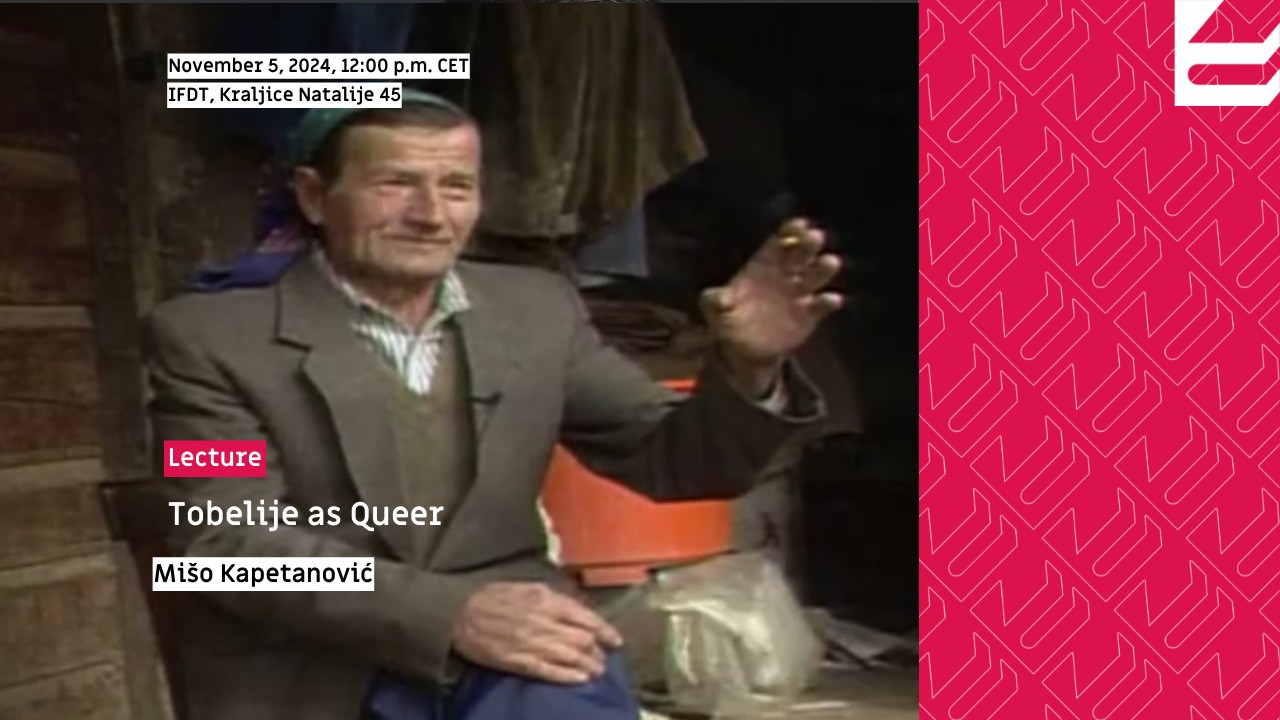
Mišo Kapetanović, Tobelije as Queer (GenLab)
Tobelije, individuals assigned one sex at birth but raised in a different gender role, have long captivated scholars within South Slavic-speaking communities and beyond. This presentation explores the historical anthropology of tobelije in the Western Balkans, focusing primarily on South Slavic communities while also referencing Albanian-speaking lands. With the population of tobelije now nearly extinct in Slavic areas and less than a hundred individuals remaining in Albanian-speaking regions, we revisit a fundamental question: How did patriarchal, traditional rural communities accommodate these unique individuals? By engaging with historical and contemporary research on tobelije (also known as sworn virgins) in Serbo-Croatian literature and works by local authors published internationally, this study applies gender and queer studies frameworks to examine the (auto)colonial and modernist tropes that have shaped researchers’ perceptions of their subjects. Over a century of tobelija research has produced a plethora of ideas about how these “strange” and “weird” individuals functioned in rural hinterlands, often reflecting the ideological tensions among the researchers themselves. The presentation offers a queer reading of established ideas about tobelije, challenging the notion that it is “easier to imagine Amazonas than queer folk in rural areas.” This perspective is explored through two avenues: the direct history of early sex and sexuality research, including the networks of information gatherers directed towards Vienna, and a broader application of gender regimes theory. By examining Ottoman sexualities as a reference point, I propose a new interpretation of tobelija sexualities and gender performances. By revisiting both past and contemporary scholarship, this study aims to offer a new, more inclusive understanding of gender diversity in traditional societies.
Mišo Kapetanović is a postdoctoral researcher at the Institute for Habsburg and Balkan Studies, part of the Austrian Academy of Sciences. He earned his doctoral degree in Balkan Studies from the University of Ljubljana, Slovenia (2017), and has previously worked at the University of Rijeka and the University of St. Gallen. His research focuses on everyday life, the cultural history of the working class, labor migration, queer culture, popular music, consumer culture, and vernacular commemoration practices. This presentation is part of the project ‘Looking for Historical Queerness in the Slavic-Speaking Dinaric Mountains – DINARKVIR,’ supported by Marie Skłodowska-Curie Actions, Horizon Europe.
Mišo Kapetanović, Marie-Skłodowska Curie Postdoctoral Fellow, Institute for Habsburg and Balkan Studies, Austrian Academy of Sciences.
